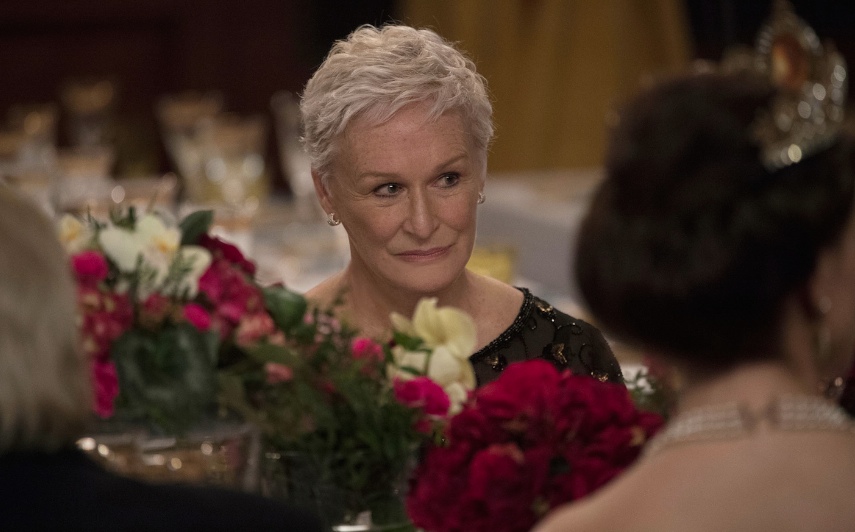The Wife film review: Glenn Close serves up a career-best performance as Nobel laureate’s beleaguered spouse

What happens when you win the Nobel Prize? Does a peace dove deliver the news by flying telegram? Is there a banquet of all your favourite foods? Can you invite your mum?
This simple dispersal of news becomes one of many fascinating aspects of The Wife. Based on a bestselling novel by Meg Wolitzer, it’s superficially about Joseph Castleman, a fictional author who wins the Nobel Prize for Literature. Only, as the title suggests, this life-defining event isn’t told from his perspective, but his wife Joan’s.
Rather than rely on voiceover, the camera studies her steely expression as she placates his sycophantic admirers and laughs along with the banal anecdotes she’s heard him relay a thousand times before. It’s a superbly stoic performance from Glenn Close – arguably a career best – and a notable turn from Jonathan Pryce, too, as Joseph. Apparently Gary Oldman was initially earmarked for the role, but Pryce embodies a narcissistic masculinity that Oldman might have been too eccentric to pull off.
The Castlemans’ relationship strains at the seams as they struggle to cope with the constant fawning admiration, the snootiness of the other laureates and their own resentful offspring. One scene, in which the couple have to look gracious as they’re woken up by a Swedish choir bearing breakfast, is delicious in its drawn-out awkwardness.
To make matters worse, Castleman’s transparently awful biographer has blagged a ticket to the ceremony in Stockholm and is threatening to reveal a potentially career-ending secret that’s revealed to us over a series of seamlessly placed flashbacks. Close’s own daughter Annie Starke plays a younger Joan, a fiercely intelligent writer who's let down by an overwhelming eagerness to please her creative writing professor.
Though it’s a study of male/female power dynamics, the direction maintains an objective distance. Joan’s feelings are inferred, rather than relayed and, as the viewer becomes more knowledgeable about the Castlemans’ history, our perception of Joseph’s behaviour changes, transforming him from a vaguely dismissive husband into a downright monstrous one. Then, like a gathering storm, the downpour arrives on the night of the Nobel ceremony.
This eminently watchable film is a masterclass in show-don’t-tell storytelling and a must-see for anyone vaguely interested in how gender politics play out in real relationships.